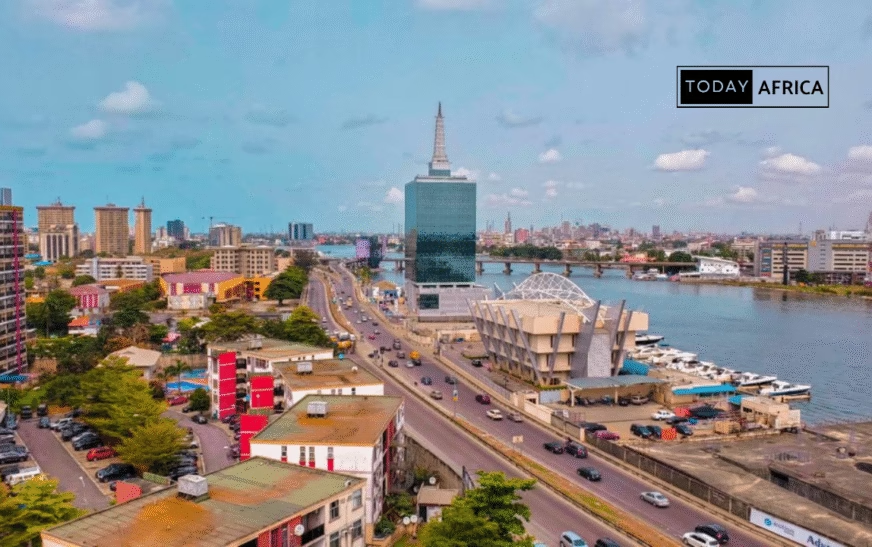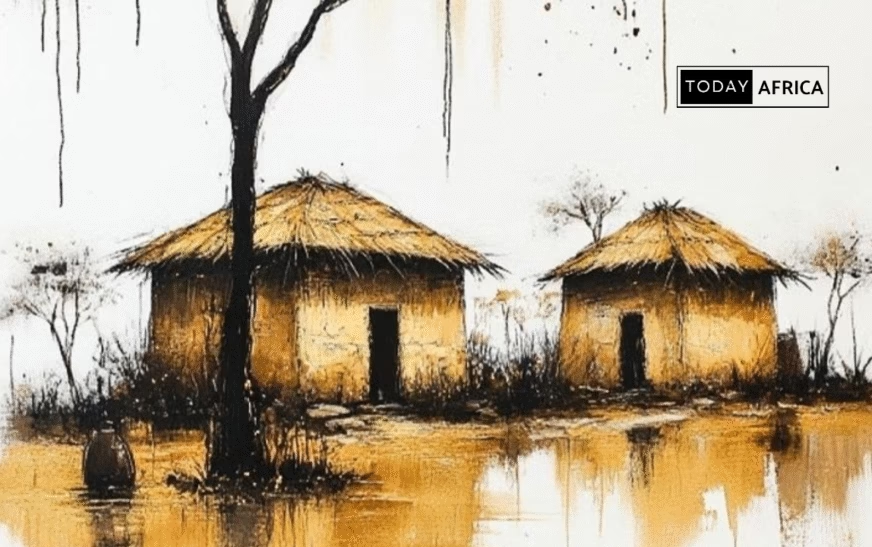Every big company in Africa began the same way, with someone, somewhere, noticing a small problem and thinking, maybe there’s a better way to do this.
That’s how it usually starts. A spark. A frustration that won’t leave you alone.
Maybe it’s a local farmer who can’t sell her produce fast enough, or a young designer watching imported fabrics eat up all the market share. One idea, one “what if?”, and suddenly you’re imagining a business.
But ideas are cheap.
The real challenge is turning it into something that works, something that survives the chaos of African markets, the gaps in infrastructure, and the weight of limited funding. And yet, people keep doing it.
This article is about that journey. About what it really takes to build from scratch in a place where opportunity and uncertainty live side by side.
How to turn your simple idea into a business in Africa
1. Identify the idea (from observation to opportunity)
It all starts with noticing something. A friction. A gap in how things are done.
Across Africa, such gaps are everywhere. For example, inconvenient payments, unreliable power, lack of local manufacturing, and logistics bottlenecks.
The trick is not only to spot a gap but to realistically know how you might fill it. It doesn’t have to be world-changing on day one. It just has to solve something meaningful in a specific context.
Take the case of Salubata, a Nigerian shoe brand that turns plastic waste into modular designer shoes.
Their idea wasn’t “let’s create a global luxury brand” but “there’s plastic waste, there’s interest in local manufacturing, there’s demand for stylish, affordable shoes”, and from there the idea becomes a business.
But stop for a moment and acknowledge this, having an idea is the easy part. The hard part is believing it’s more than a thought. Before you even pick a logo, asking two questions matters:
- Does this gap matter enough to someone (ideally many someones) that they’ll pay for a solution?
- Can I deliver it in my context, given the constraints of geography, infrastructure, funding, regulation?
In Africa these questions carry extra weight because the constraints are real.
One study states, “In many parts of Africa, inadequate infrastructure remains a significant hurdle. Poor internet connectivity, unreliable power supply, and limited access to quality logistics can hamper the growth of tech startups.”
So yes, you can start with an idea, but only build if you ground it in local realities.
Read Also: Why African Startups Struggle with Scaling and How to Fix It
2. Test and validate the idea
Once you have a viable idea, you need to test it. This is where many African entrepreneurs stumble — not because they don’t have talent, but because they skip the small-step work.
Testing means: talking to potential users, offering a minimum version of your service, getting feedback, and iterating. It’s less glamorous than “launching a platform”, but far more critical.
For example: imagine our Ibadan fabric idea. Rather than ordering 1000 rolls, you might try 10 prints, sell to 20 local clients, see if demand holds, check logistics, pricing, turnaround time. That mini-test teaches you more than any PowerPoint ever will.
In Africa, where external funding is scarce and risk is higher, this lean approach is doubly wise.
According to research, “African startups face a tough reality, limited resources that directly shape their fundraising strategies and operational decisions.”
Also worth noting, testing helps refine your idea into a business model. What will you charge? What cost structure will you have? How will you deliver? What constraints (power, logistics, regulation) will you need to manage?
In our example, you will discover that printing locally costs too much because power is unreliable, so you pivot to using regional partners. Or you discover an online drop-ship model works better than stocking heavy inventory.
3. Build the business (foundations that matter)
When the idea is tested and the model begins to hold up, it’s time to build the business, meaning: define your product or service, set up operations, get the first customers, maybe hire help, handle finances, and prepare for scaling (eventually).
Operational realities
In Africa the operational side often requires creative workarounds:
- Logistics: delivery networks may be weak; roads may be rough; clearing customs may be slow.
- Infrastructure: unreliable power or internet may force backup plans (generators, offline versions, phones).
- Regulations: tax, import duties, local licensing — they vary significantly across countries. One piece notes: “Regulatory fragmentation is another challenge for African entrepreneurs. Different countries have varied policies… This makes it difficult for startups to scale regionally.”
- Funding: With limited seed money, many founders bootstrap longer than typical in Western ecosystems. The number: African startups raised about $2.2 billion in total funding in 2024 — roughly 0.6% of the global total.
These are not excuses; they are realities. Ignoring them is a recipe for friction. Facing them early is smart.
Related Story: The Rise of Remote Founding Teams in Africa
Customer acquisition & local fit
One of the biggest mistakes is assuming global customer behaviours translate locally. African markets have unique patterns: mobile money dominates in many places, not credit cards; retail may happen in physical markets; trust is earned differently.
A business must design for the local context. For example, if your idea is digital, ensure mobile-first, cheap data, maybe offline fallback. If your idea is physical, manage cash flows because consumers may pay in small amounts.
Another example: consider how fintech in Africa has scaled because they built on mobile money, not assuming banking works the same as in Europe. This local adaptation is what allows ideas to become businesses.

4. Scale and growth
You’ve got the first few customers. Congrats. But now the real work begins: scaling the business. This is where you see the difference between a good idea and a sustainable business.
Scaling challenges
In Africa especially, scaling is harder than it looks. As one commentary bluntly puts it: “For every success story, numerous startups fail.”
Scaling means more users, more markets, more operations. It often means moving across borders. And that introduces more complexity: regulatory compliance, currency risk, cultural differences, logistics again.
Also, investors may still be wary. The funding gap remains. For instance, African startups raised $2.2 billion in 2024, a drop from previous years, though there’s nuance.
So scaling could mean three things: grow deeply in your existing market, expand to adjacent markets, or pivot the model to leverage new channels. The route depends on your business.
Example: Salubata
Going back to Salubata, their shoe business didn’t stay local. They are exporting to other markets, leveraging the niche of recycled plastic modular shoes. Starting local, testing, then expanding. That’s how an idea stretches into a business.
Fintech & mobility
In the broader ecosystem, mobility and logistics start-ups across Africa are showing scale potential. One report: “Transport and logistics continue to attract massive investments … for example, Moove’s $100 million Series B round exemplifies the sector’s potential for transformative solutions.”
Which brings us to a point: some sectors are more conducive to ideas becoming businesses in Africa (fintech, agritech, logistics, cleantech). That doesn’t mean other sectors are impossible, just be aware of where you’re playing.
Pitfalls and realities: what to watch out for
I’d be remiss if I only painted the rosy path. The reality is tougher. So let’s talk about what often trips up founders, especially in African contexts.
Over-estimating the scale too soon
One common error: treating the idea as if it’s already a business. Scaling too early without an operational foundation often leads to failure.
One statistic, the average start-up failure rate in Africa is high, “80% of businesses in Africa don’t survive beyond five years”, according to some reports.
Could be worse: speculative with no paying customers, high burn, infrastructure costs.
Read Also: What It Really Costs to Build a Startup in Africa This Year
Funding mismatch
Because external capital is harder to secure, many African businesses are underfunded for their ambition. As noted: “access to capital remains one of the biggest challenges for startups in Africa.”
That means you might have to build slower, be more frugal, or find alternative funding models (grants, revenue first, partnerships).
Regulatory and market fragmentation
Expanding across African countries means dealing with different regulations, currencies, and tax regimes. A business that works in Nigeria may need significant adaptation in Kenya.
Regulatory fragmentation “makes it difficult for startups to scale regionally.” So many founders focus on one market, nail it, then expand. Sometimes two steps forward is better than one big leap.
Infrastructure and supply chain issues
Especially for physical products and manufacturing, issues like unreliable power, poor roads, and logistics costs can reduce margins or slow growth. The idea that “digital is easy” sometimes masks the fact that even a digital product needs reliable connectivity, data costs, and user literacy.
Mindset and skills to turn your idea to business
Building a business from a simple idea demands more than good intentions. It demands mindset and skills, or at least access to them.
Resilience + adaptability
You’ll need to ask “what if this fails?” and “what if this takes twice as long?” Often. Because things will go wrong. The infrastructure fails, the supply chain delays, regulation shifts. Being ready to adapt is critical.
Business skills: financial literacy, operations, sales
Ideas are often in product or service. But a business needs sales. A business needs cashflow. A business needs people. Many founders are great at product but weaker at operations or finance. The successful ones start recognising this early and build capabilities (or partner) accordingly.
Local network and partnerships
In Africa, local networks matter. Partnering with existing players (distribution, telecoms, banks) can accelerate growth. “Corporate partnerships … offer access to infrastructure, established customer bases and market credibility – advantages that can accelerate growth in ways traditional funding often cannot.”
And being plugged into local-ecosystem (hubs, accelerators) helps.
Focus on value proposition and unit economics
Testing helps you find out if your value proposition resonates. Building on that, you must obsess on unit economics, cost per customer, cost per delivery, and margin per product. Many good ideas fail because the unit economics never worked at scale.
Customer-centricity
At the heart: your idea must genuinely solve a pain point for someone. In Africa, there are plenty of “innovations for innovations’ sake”. The more grounded the idea is in actual user behaviour, the higher the chance of success.
Related Story: How African Founders are Adapting to the Startup Funding Slowdown
Step-by-step view for founders in Africa
So you’re in Ibadan, Lagos, Nairobi, Accra, or any African city. You have an idea. What next? Here’s a refined narrative sequence (not a checklist, but a roadmap you’ll feel):
- Observe and validate the idea: You notice something that frustrates you or others around you. You ask: “Would someone pay to fix this?” You test small (talk to users, build a mini-version).
- Design the first offering: What is the minimum viable product/service you can deliver? How will you reach your first customers? How will you get paid? What are your costs?
- Launch, get your first customers: You sell something. That’s key. Because sales teach you faster than any theory. You learn your unit economics, your customer behaviour, your operations.
- Iterate and refine: You fix what’s broken: delivery delays, price too high, customer acquisition too slow. You adapt.
- Build operational foundation: You set up the tools: accounting, customer database, supply chain, staff/contractors. You ensure you can handle growth without collapsing under your own weight.
- Scale carefully: You grow your customer base, expand regionally (maybe), add adjacent revenue streams, and improve efficiency. You perhaps raise capital or partner with bigger entities.
- Sustain and evolve: You recognise that markets change. You keep the customer at the centre. You keep watching costs, you keep building resilient systems, you keep track of regulation and competition.

Throughout, you keep a grounded mindset: you know the context, you know the challenges but you aren’t paralysed by them.
Why it matters for Africa and for you
Why should you care about turning a simple idea into a real business in Africa (beyond personal ambition)? Because it matters for the continent’s economy, job creation, innovation and inclusion.
Many economies in Africa are youthful with large populations, growing mobile penetration, rising middle class. The opportunity is real.
Also, African problems need African solutions. Often, Western models don’t fit perfectly. Local entrepreneurs are best-placed to adapt, customise, and deliver.
Data backs that attention: one article notes “over the past decade, Africa has experienced a surge in startup activity … young, innovative companies … restructuring traditional markets and creating new opportunities for economic growth.”
Yet, the gap remains; Africa still attracts a small fraction of global funding; many businesses never scale. But that means the opportunity space is wide.
For you, if you have an idea, you’re part of that movement. It means you don’t need to wait for “perfect conditions” (they rarely exist).
Read Also: How Entrepreneurs can Leverage Open Banking APIs in Africa
Conclusion
Turning a simple idea into a real business in Africa is less glamorous than some startup lore suggests.
But it’s no less meaningful. It’s about noticing a gap, building a solution, testing it, doing the day-to-day operations, and then scaling with intention and context awareness.
The most important takeaway, ideas matter, but execution matters more. In the African context, execution means working with local realities, constraints, partnering, iterating, and being resilient.
If you have an idea, even a modest one, you are in the right place with the right opportunities. The time is now. The continent is ready. Your business might be the next story we tell.
Leave a comment and follow us on social media for more tips:
- Facebook: Today Africa
- Instagram: Today Africa
- Twitter: Today Africa
- LinkedIn: Today Africa
- YouTube: Today Africa Studio

















2 Comments
Normally I do not read article on blogs however I would like to say that this writeup forced me to try and do your writing style has been amazed me. Thanks, quite great post
Thank you for finding value in the article.
Comments are closed.